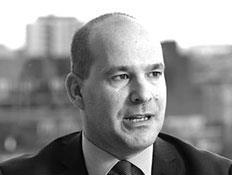That was the question posed by Rowan Moore in his recent Observer article on King’s Cross.
His answer? “Nothing.” Except “the two schools, the university, the 2,000 new homes, of which 50% are affordable, the swimming pool, jobs, the cookery school, the community garden grown in skips… the floodlit sports pitch, the 20 restored historic buildings, the not-bad architecture, the creation of 26 acres of open space, with fountains and trees, in what were partly inaccessible backlands. Apart from that, nothing.”
Rowan Moore characterises the King’s Cross Central Limited Partnership (KCCLP) as acting as a de facto urban municipality, seeking to transform the area in pursuit of both the profit motive and social goals: to improve the lives of people with new facilities and investment. In reality, we have never separated those objectives. Our very first public document about King’s Cross, Principles for A Human City, published in 2001, put it very simply: “To us, creating the conditions to improve urban life is the key to achieving long-term value.”
That’s why we embrace the model of urban development in which commercial development takes a lead, while working closely with local authorities and local communities. But politicians, designers, developers and planners from other European cities often alight on this point in surprise. They find it disconcerting that a private sector entity has been “allowed” to take a lead on masterplanning, programme and delivery, the public realm and urban services.
Rowan Moore laments that King’s Cross is in danger of being the last of its kind. There is, he says, too little sign elsewhere of the richness of King’s Cross and he worries that local councils are now too undermined and weakened to help hold this model together.
I am more optimistic. I see exciting opportunities for developers, like Argent, that have the skills to tackle and deliver complex urban change, working in effective partnerships with committed local authorities, housing associations and others. Many local authorities are facing serious challenges as they face a second round of significant funding cuts, but in many cases the response is to develop positive growth strategies that put development and the use of their own extensive landholdings at the centre of broader objectives.
A recent Centre for London report, Hollow Promise, sponsored by Argent and others, looks at how London fails people on modest incomes, people who are “working hard but getting nowhere”. Around 20% of Londoners are said to fall into this group, which is struggling to build up assets in London while earning incomes that barely cover getting to work and the essentials of life. The report coins the term “endies” (Employed but no Disposable Income or Savings) and suggests some innovations to lower the cost of living and ease increasing economic pressures.
Developers have a lot to offer in meeting these challenges. We also have a lot to gain and not just financially. One of the most rewarding parts of King’s Cross, for me, has been the new King’s Cross Academy primary school, which opens its doors next September. I’m not suggesting developers should routinely sponsor schools. But let’s embrace the opportunity to put development firmly on the agenda as a positive response to the challenges facing UK cities.
Robert Evans is a partner of Argent and chair of the BPF’s Development Committee






























No comments yet